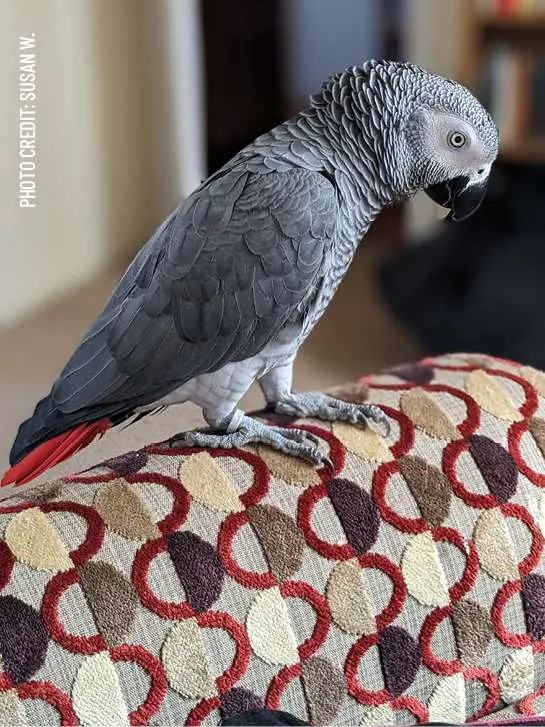How to Live with an African Grey
What to Know About Your African Grey
African grey parrots (both Congo and Timneh species) are native to Africa, where they live high in the forest canopy and get lots of sun exposure. This habitat is important to remember for providing a healthy environment for captive African greys. Some daily exposure to sunlight is desired, or if not possible, then high-quality UV lights should be provided in the enclosure.
African greys are popular as pets because they are extremely intelligent and alert. As with many parrots, these birds may form a pair bond with individual family members, which may lead to a variety of undesirable behaviors including aggression towards others, especially during the breeding season. They form memories and associations to places, objects, and people with both positive and negative experiences.
African grey parrots have the greatest potential among common pet bird species for a range of vocalizations and increasing vocabulary throughout their lives. This mimicking ability can include sounds like dripping water, flushing toilets, squeaky doors, coughs and sneezes. Their enunciation is clear enough to be recognized by voice recognition devices such as Alexa.
Is My African Grey a Boy or Girl?
African greys are difficult to sex by their physical characteristics. Therefore, if it is necessary for you to know the gender, your veterinarian can perform endoscopy for direct visualization of the organs or use laboratory methods to determine the sex. If you are planning to breed African greys, they prefer to choose their own partner and bond for life. The current aviculture trend is to allow chicks to remain with their parents for the first few weeks of life and then be removed for handfeeding. This time with the parents may help reduce any behavioral issues as the bird matures.
How to Keep Your African Grey Happy
African greys are intelligent and need stimulation in their environment. This should include safe toys, social interaction, foraging and problem-solving opportunities. If you are considering wing-clipping, remember that these are heavy-bodied birds and one must make sure the bird has some control over landing in order to avoid injury from crashes with flying attempts.
Some Health Issues Particularly Affecting African Greys
- Congestive heart failure
- Atherosclerosis
- Feather destructive behavior
- Respiratory diseases
- Oral abscesses
- Malnutrition
- Choanal atresia
- Psittacine Beak and Feather Disease
- Proventricular dilatation disease


